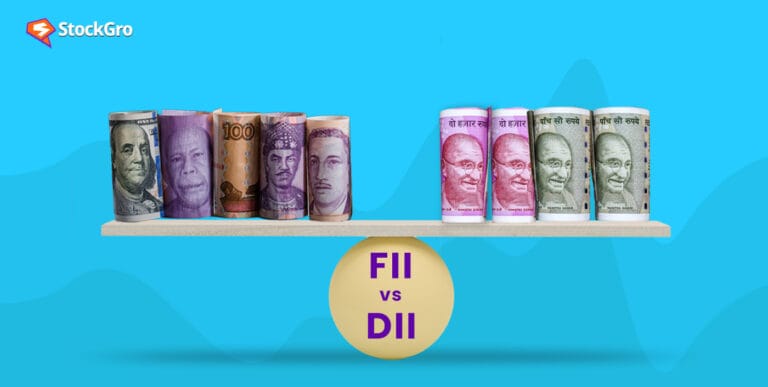
Navigating the intricate financial ecosystem requires you to grasp the various marketplaces facilitating the exchange of financial assets. By comprehending how the various markets operate, you can take steps to seize emerging opportunities.
As most of us know, the basic trading market is called the secondary market. Let us understand the meaning of the secondary market, its crucial concepts, key components, and opportunities.
Defining secondary market
Money market and the Capital market are the two types of financial markets. The capital market can be divided further into two markets – primary and secondary markets.
The secondary capital market is where existing financial assets, like shares, bonds, commodities, and other assets, are traded by investors. It focuses on the exchange of existing securities, unlike the primary market.
For example, if an individual wants to own stocks of a listed company, say ICICI Bank Limited or another, the process will be completed in the secondary market rather than with the company.
It provides an efficient platform where investors can buy or sell financial assets, enhancing liquidity by allowing them to enter or exit their positions. Majority of the trading is done in the secondary market and therefore, it serves as a controlling line as they aggregate information via price discovery.
You may also like: Understanding how a secondary offering IPO works & types
Key components of the secondary market
The key components of the secondary market are as follows:
- Stock Exchanges – central hubs: Stock exchanges are the central and regulated platforms operating online/offline where the trading of securities takes place.
In India, the primary stock exchanges facilitating online trading for numerous securities include the National Stock Exchange (NSE) and the Bombay Stock Exchange (BSE).
Other examples include National Commodity & Derivatives Exchange (NCDEX), and Multi Commodity Exchange (MCX).
- Stockbrokers – facilitators: In the organised environment of the secondary market, buyers and sellers can interact through stockbrokers only.
They are the registered members of the Securities and Exchange Board of India (SEBI) and stock exchanges to execute trades.
A few renowned names in the brokerage industry are Motilal Oswal, ICICI Direct, Bajaj Financial Securities, and numerous others.
- SEBI – the regulator: SEBI is the governing body in the Indian financial markets. It formulates policies for market regulation and monitors activities on online platforms to protect investors’ interests and maintain transparency in trading activities.
Types of the secondary market
The two types of secondary market are the auction and the over-the-counter (OTC) market.
- Auction market: In an auction-based secondary market, securities are traded at a centralised platform called a stock exchange. They place orders online through registered stock brokers.
On stock exchanges, orders are matched electronically and completed at the best available prices. Auction markets offer more transparency. A wide range of investors and traders can participate in it.
- OTC market: OTC or dealer market is a decentralised market. There is no role of centralised or regulated stock exchanges as securities are traded directly between buyers and sellers.
OTC markets lack the same level of transparency and price discovery as auction-based markets offer. Typically, institutional investors consider this type of market.
Also Read: What is Capital Market – an engaging guide for beginners
Comparison with the primary market
The primary and secondary markets difference lies in the function they involve and the types of transactions they facilitate.
- In the primary market, companies introduce the first issue of their shares to the general public to raise capital. Conversely, the secondary market deals with stocks that have already been issued.
- While the primary market contributes to capital raising, the secondary contributes to liquidity, providing opportunities for traders to buy and sell securities conveniently.
Primary Market vs. Secondary Market
| Aspects | Primary market | Secondary market |
| Purpose | Fundraising through the first issue | Trading securities and providing liquidity to investors |
| Price Determination | IPO issuer company and merchant bankers | Primarily supply and demand forces of securities |
| Intermediaries | Merchant Bankers and Registrar and Transfer Agents (RTAs) | SEBI-registered stockbrokers |
Role of secondary market in trading
The following points will clarify the functions of the secondary market:
- Smooth trading after the initial sale of shares
After securities are issued in the primary market, they can be available for trading in the secondary market. It provides a well-organised mechanism for trading activities after the initial issuance.
- Creating opportunities
The secondary market creates opportunities for investors as they can invest in various types of securities. It makes it easy for sellers to liquidate their investments and access funds when required.
It empowers individuals to diversify their investment portfolios to meet varied financial goals.
- Liquidity
Liquidity is a fundamental concept in trading that defines how easily individuals can convert their securities into cash with minimal impact on their market price. It plays a crucial role in enhancing liquidity by providing a platform for easy trading.
- Contributing to market efficiency
In this market, prices are adjusted swiftly based on the latest information and supply and demand for security, ensuring that the securities are valued accurately.
The information that impacts security prices can be companies’ earning reports, market sentiment, economic factors, geopolitical events, etc.
Also Read:
How to trade in the secondary market?
As mentioned above, investors can not approach the stock exchange directly. You need to sign up with a registered stock broker to access its trading platform linked to multiple stock exchanges.
Following are the three accounts that one needs to open to trade securities:
- Demat account: It is an online account to be opened in the name of the investor with a SEBI-registered stock broker. This account is required to hold securities electronically and safely.
- Trading account: It is another online account one needs with a SEBI-registered stock broker for online trading. It allows the account holder to access the broker’s trading platform.
- Bank account: Investors need a bank account in their name to pay or receive funds electronically on account of securities trading.
Conclusion
Arm yourself with a deeper understanding of secondary market concepts to navigate the complexities of online trading. Look at the interplay of supply and demand impacting security prices and learn the balancing act of risk and reward in the secondary market.

